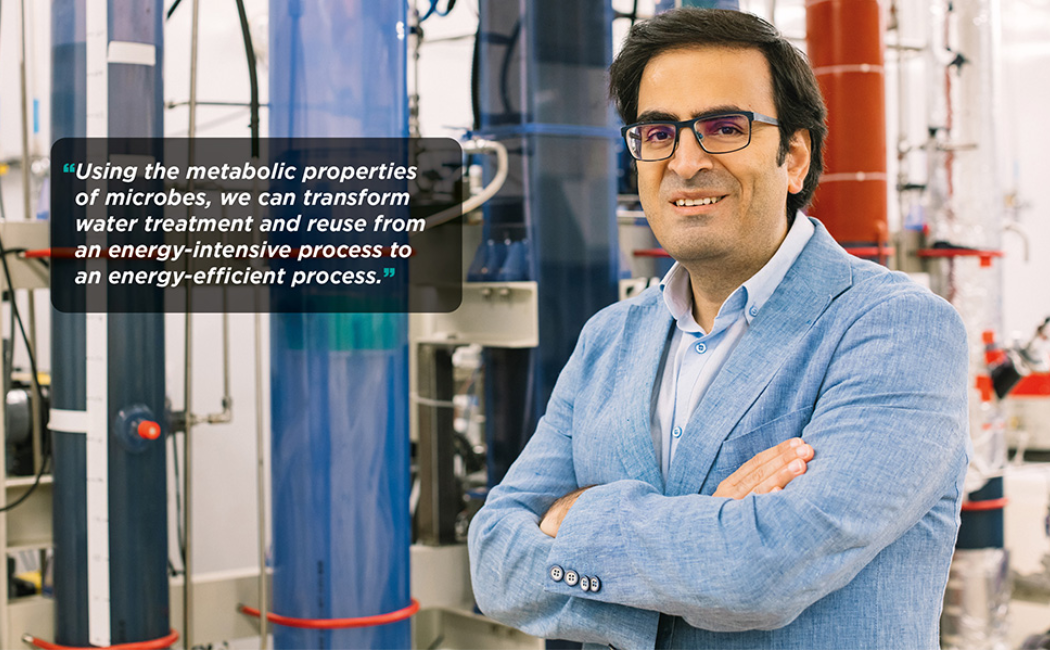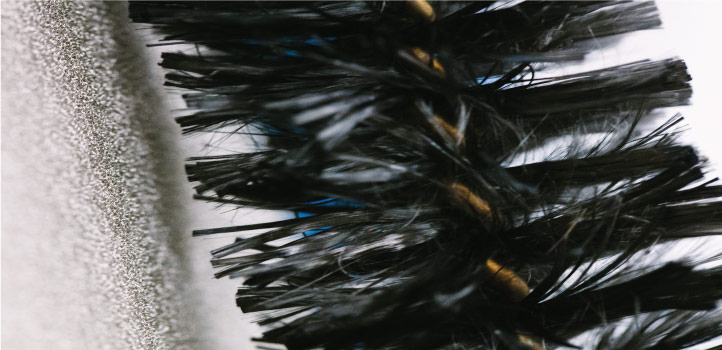


04 April, 2021

“Microorganisms are among the most diverse and prolific organisms on the planet, and many of them can remove pollutants from waste and generate fuels and chemicals as part of their natural metabolism,” says Pascal Saikaly, an environmental engineer at KAUST. “I’m determined to harness the power of microbes to serve society.”
Urban wastewater is a valuable resource when it is processed to produce usable water, generate energy or retrieve nutrients and materials. Water reuse technologies are a key research area at KAUST, and Saikaly and his team are spearheading novel technologies that use microbes to treat used water in bioreactors while also generating energy and useful products.
Saudi Arabia largely uses conventional wastewater treatment processes that are designed solely to treat waste. However, not all of these processes can generate treated water that is suitable for nonpotable reuse. Moreover, these treatment plants use vast amounts of energy at great expense. Saudi Arabia aims to expand water reuse from the current 25 percent to 70 percent by 2030 as part of their Vision 2030 “waste to resource” policy. Currently, 40 percent of Saudi households are not connected to the centralized wastewater network. Also, the Kingdom’s population is growing, adding pressure to existing infrastructure.
“We need viable alternatives for wastewater treatment and reuse that are decentralized, meaning they should both treat wastewater and provide water for reuse on site,” says Saikaly. “These technologies must be low cost, low carbon, scalable and, ideally, energy neutral, which means they generate enough energy to power themselves1.